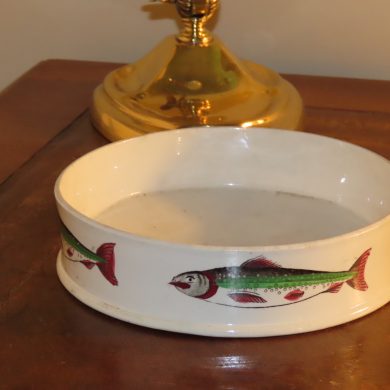Source: David Jolly – NYTimes.com
Jane Lubchenco, the administrator of the National Oceanographic and Atmospheric Administration, and Maria Damanaki, the European Union’s commissioner for maritime affairs and fisheries, announced the deal in Washington. The pact calls for cooperation on adopting effective management measures in regional and international organizations to combat illegal fishing and promoting tools that prevent illegal fishing operators from benefiting economically from their activities. The United States and the European Union will also share information on illegal fisheries and “promote the sustainable use of fisheries resources while preserving marine biodiversity,’’ the two sides said.
Policymakers argue that illegal, unreported and unregulated fishing — known as “I.U.U.” fishing or pirate fishing — makes a mockery of national and international laws meant to ensure fish stocks are managed in a sustainable manner.
‘‘Illegal, unreported and unregulated fishing is one of the most serious threats to American fishing jobs and fishing communities, as well as to the health of the world’s oceans,’’ Dr. Lubchenco said in a statement. ‘‘International cooperation across oceans will help us maintain a level playing field for our fishermen by strengthening enforcement and preventing illegal fishing.’’
According to NOAA, the European Union and the United States rank first and third as the world’s top seafood importers, with Japan ranked second. The Obama administration puts the global cost of illegal fishing to legal fishermen and coastal communities at up to $23 billion of seafood and seafood products annually.
Such numbers are but guesses. As the United Nations Food and Agriculture Organization notes, no one knows exactly how much illegal fishing there is because of its very nature.
‘‘We do know,’’ the F.A.O. says, ‘‘that for some important fisheries, I.U.U. fishing accounts for a large percentage of total catches. Even more troubling is that the amount of I.U.U. fishing worldwide appears to be increasing, as I.U.U. fishers try to avoid stricter fishing rules that are being created to deal with downturns (that is, declining catches) in a growing number of fish stocks.’’
Environmentalists welcomed the news. Joshua S. Reichert, managing director of the Pew Environment Group, said in a statement that it ‘‘could represent a major turning point for the health of the oceans, communities that depend on fish and the majority of fishermen who play by the rules.’’
‘‘Because closing the net on pirate fishing in one area often results in criminals simply moving to another, we look forward to working with the EU and the U.S. to build a global fisheries enforcement system — the only way to truly stop these crimes on a broad scale,’’ he said.
One particularly well-documented example of an out-of-control fishery was described in a 2010 report by the International Consortium of Investigative Journalists. It said that a $4 billion black market in bluefin tuna has able to function partly because of official neglect in European fishing countries.
The United States and the European Union have already taken various measures measures against illegal fishing, the two sides noted, including the former’s High Seas Driftnet Fishing Moratorium Protection Act and European Union rules that block illegal seafood imports without the required certifications.
Education is also considered a major tool in fighting illegal fishing. Groups like the Friends of the Sea offer information about the problem at their Web sites, and the Marine Stewardship Council tries to help reduce illegal fishing by certifying legitimate fisheries and educating consumers about the most sustainably caught seafood.
.

